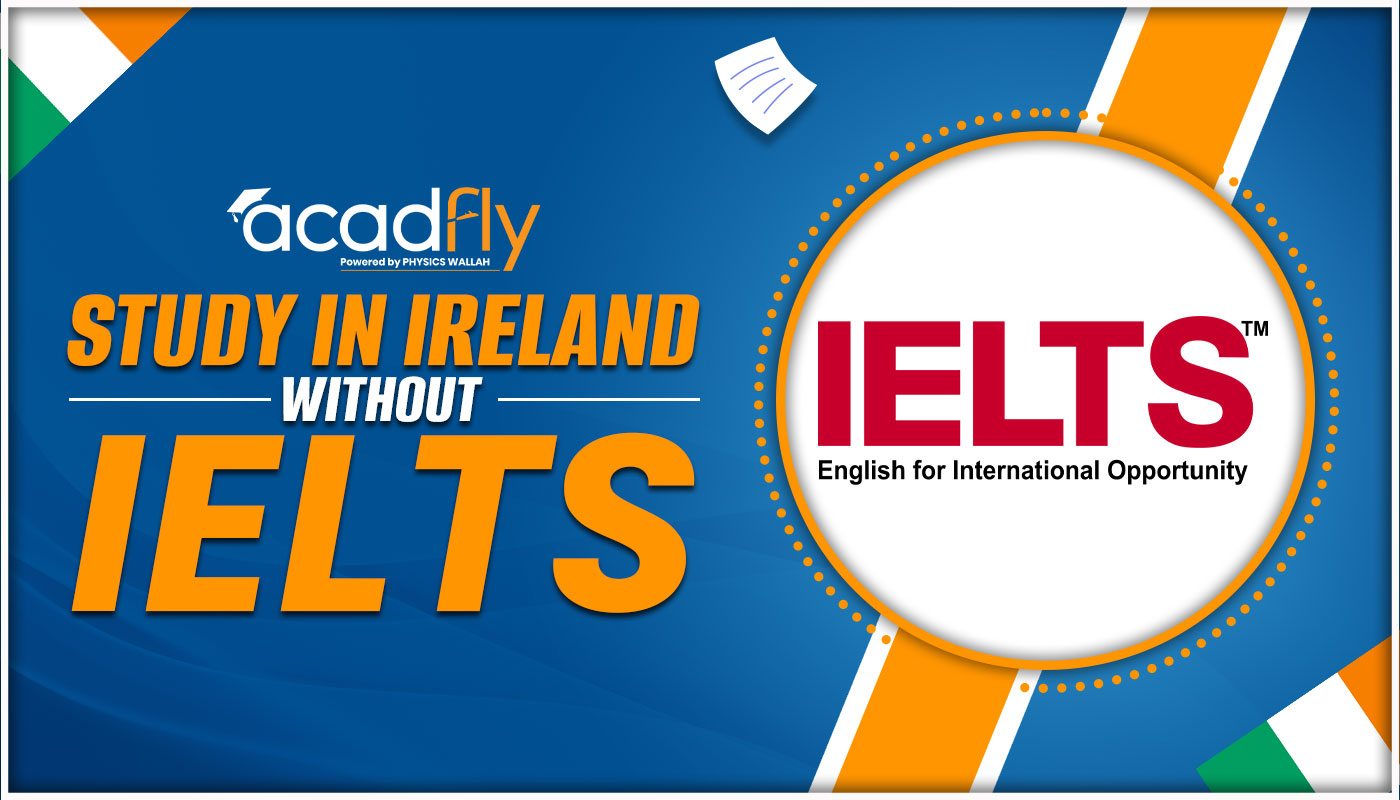


Jobs in Ireland for Foreigners: Ireland offers a dynamic and varied labor market, with powerful industries such as technology, finance, healthcare, and hospitality. Global talent is drawn to it, and established sectors, startups, and international businesses all support professional development. It is essential for foreign workers looking for work to understand the major industries, job trends, and visa requirements. This information promotes long-term career growth and professional achievement by matching capabilities with Irish employers.
This article will help you navigate Ireland's dynamic and diverse job markets. It also offers insights into the country's criteria for work visas as well as the highest-paying jobs in Ireland.
Why Prefer Jobs in Ireland for Foreigners?
Known for its strong economy, particularly in industries like banking, technology, and pharmaceuticals, Ireland serves as a hub for development and innovation. For Indian students seeking jobs in Ireland with a combination of drive and specialized abilities, this is the perfect environment.
Growing Tech Hub: The strengths of Indian graduates are well-matched with Ireland's strong need for qualified experts in the fields of IT, AI, and telecom.
Skilled Worker Shortage: Qualified Indian professionals can find jobs in Ireland due to a lack of skilled workers in numerous areas.
English-speaking nation: Since English is widely used in business, applicants from India don't have any language barriers.
Powerful Economy & High Pay: Ireland is a desirable place to pursue a career due to its growing economy and high average pay.
Ways to Find Jobs in Ireland for Indians
Joining the employment market in a foreign nation might be quite difficult. However, if you have the correct strategy and tools, getting a job in Ireland may be a quick and successful process. How to do it is as follows:
Use Online Job Portals: IrishJobs.ie, Indeed Ireland and LinkedIn offer a wide range of roles. Make sure to include Jobs in Ireland for freshers in your search.
Network: To make contacts and discover opportunities, go to industry gatherings, seminars, and workshops.
Utilize University Resources: Attend employment fairs, workshops on resume construction, and career counseling by using the university's career services.
Consider Internships and Work Placements: Acquire real-world experience that could lead to full-time jobs.
Highest Paying Jobs in Ireland
For many Indian students, the appeal of working in Ireland goes beyond experience and includes the possibility of a successful career. Ireland has a competitive work market and many high-paying positions, especially in industries like technology, healthcare, and finance.
Tech and IT: Well-paying positions in cybersecurity, data analytics, and software development.
Healthcare Sector: Opportunities in cutting-edge European healthcare systems are available, and there is a high need for medical professionals.
Financial Services: Financial analysis and investment banking positions with competitive pay.
Engineering: Because to Ireland's emphasis on invention and development, there are high-paying positions available in mechanical, biomedical, and civil engineering.
Steps to Get Job in Ireland for Foreigners
Step 1: Analyze the Irish labor market thoroughly
-
Thorough research of the Irish job market is crucial to identify the most lucrative opportunities.
-
Use industry reports, labor market surveys, and insights from colleagues already working in Ireland.
Step 2: Craft an impressive Irish-style resume.
-
Tailor a high-quality Irish-style resume, highlighting skills, achievements, and personal achievements.
-
Keep the resume no more than 3 pages.
Step 3: Register and submit applications on job portals
-
Register and apply on job portals like LinkedIn, Indeed, Monster, Glassdoor, and Jobs.ie, jobsIrelandeland.ie.
-
Register with trusted overseas and Ireland recruitment firms.
Step 4: Get ready for the interview
-
Prepare for interviews by researching the company, familiarizing yourself with common interview questions, and practicing answering them.
Step 5: Get a work permit
-
Secure a work permit issued by the Department of Business, Enterprise and Innovation (DBEI) or apply for it via a registered agent.
Step 6: Get a work visa
-
Apply for a work visa after receiving the work permit, selecting the right type of visa, understanding the requirements, and submitting it online or at the Irish Embassy or registered Visa Application Centre.
Regulations for Jobs in Ireland for Indians
Understanding the regulations governing employment is essential for Indian students who want to work in Ireland. The following is a summary of the main legal points to remember:
-
During the academic year, students are normally only permitted to work a maximum of 20 hours per week and 40 hours during breaks.
-
Completing coursework in Ireland may result in a work permit that allows full-time employment following graduation.
-
Gaining employment in Ireland requires an understanding of the tax system, as income tax and a Personal Public Service (PPS) number are necessary.
-
It's critical to comprehend your rights as an employee, including the minimum salary, paid time off, and appropriate working conditions.
-
Job seekers need to comprehend work visas, such as the General Employment Permit and the Critical Skills Employment Permit.
-
Ireland provides Indian students with a thriving employment market and professional advice through AECC.
Jobs in Ireland for Foreigners FAQs
Q. What are the tips for finding work in Ireland?
Q. How much can Indian students earn in Ireland?
Q. Does Ireland need IELTS for a job?
Q. What are the salary requirements for work permits?
Q. Can I apply for a work visa as a fresh graduate or without experience?










